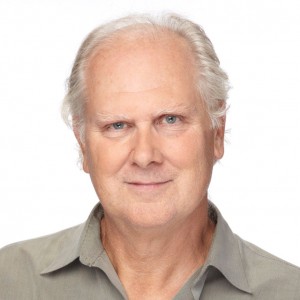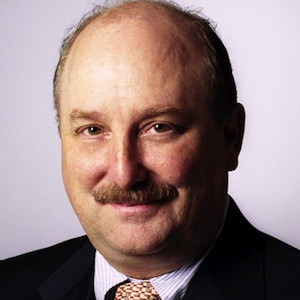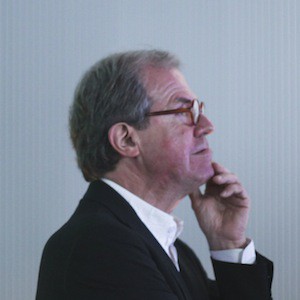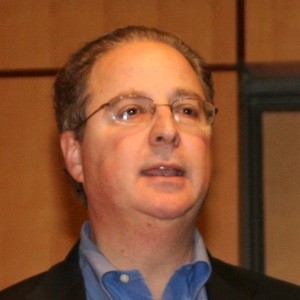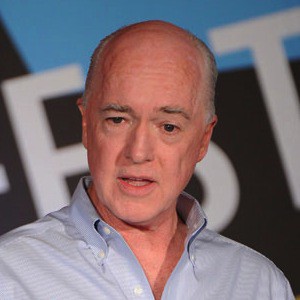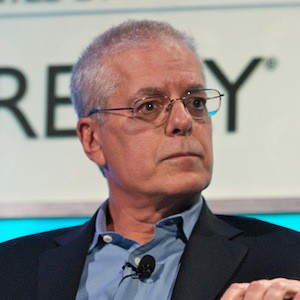John: That’s how you became a journalist?
Dan: Yeah.
John: It’s not an unusual case. An unusual path, but not an odd path.
Dan: Anyway, when reviews turned into features, I started doing
freelance pieces for the regular newspapers, not the alt weekly,
although I stayed doing that one.
When I finished school, I got a call from the editor of a little
weekly newspaper in Middlebury, Vermont, who said, “Our reporter,
singular, Is leaving. We wondered if you’d be interested in
talking to us?”
This is David Moats, who ended up winning Pulitzer, in editorial
writing for a Vermont newspaper some years later. At the end of the
first week he said, “You know, you’re going to be really good at
this if you want to. I’ll teach you everything I can teach you. But you
really got to care about it, or I’ll be really pissed.”
I found that I loved it. That’s really how I got…
John: …how you got going.
Dan: You do everything at a weekly. This was a place that would let me
do anything I wanted within reason, in other words some
assignments. I could do big features on people coming through to
talk at the college, or whatever. It was very good experience.
Then I went to a daily in Montpelier, in Vermont, the State
Capitol, and talked my way into being a stringer for the Boston
Globe and the New York Times. I called the guy, just cold-called
the Times, because I had a story idea. Basically, his response
was, “Who the hell are you?”
This was in the days when the Times vetted its stringers very
carefully, very carefully. He became someone, who over the years
became a very good friend. I ended up working for him in Kansas
City, which he invited me to join when he went to run the paper
there from the Times. I did a bouncing around a bit, not too much
bounce, five years in Kansas City, interrupted by a fellowship at
Michigan, the Knight Fellowship which became the Knight-Wallace
Then the Detroit Free
Press recruited me as they tended to do from the Michigan
fellowships. I went there and spent about five and a half years. Then the
San Jose Mercury News, recruited me from the Free Press and that
was pretty much the key moment.
John: I think you have done some early data journalism at the Free Press.
Did the San Jose Mercury recruit you specifically for tech or was
it just general assignment?
Dan: It had little to do with that. Starting in the late ’70s, I owned a
personal computer.
John: Your first one was what?
Dan: My first one was a Radio Shack.
John: TRS-80?
Dan: Yeah. I had an early Apple. I had Commodore. I really was very into
that stuff. Going back, I had actually taken programming in high
school.
John: Basic?
Dan: No, actually, FORTRAN. This was before Basic, really. I know Basic existed,
but it was very much unused at that point. Maybe it didn’t. I don’t remember exactly.
John: Yeah, it was FORTRAN and basic.
Dan: But FORTRAN, in those days, it was doing a keyboard with a tape
that you uploaded into a mainframe at a university. You found out
that you had a bug 24 hours later. It’s a very different kind of
thing. I learned pretty quickly that I was not a good programmer. I was
competent, but I didn’t have that thing.
The ones who were good read ahead and solved a problem that the
guy gave us that was do-able in about five lines. All but
one guy took at least that long because he hadn’t used the thing
that would do it for until the next week. Someone had read right ahead
and said, “that’s easy.” I realized that at point, I wasn’t going to be a good programmer,
though I have a brother who’s an exceptional fine programmer and
has started and sold several companies over the years.
Anyway, I thought computers were amazing. The minute I saw a
personal computers coming along, I thought that’s something I got
to have. In 1982 or 1983 — I don’t remember what year exactly — I
bought an Osborne that was then called a portable computer. It
became later called a luggable computer. You could actually carry
and close up into a case with a five inch screen.
I used it to file stories to the Globe and the Times. I had access
to a Teleram, the terminal people used but I couldn’t really
use it for the freelance stuff. It was for the newspaper. But I
actually was able to get the tech people at both papers…They were
overjoyed. The editors were overjoyed because this cut out so much.
John: It didn’t have to go to a telegram room. They didn’t have to…
Right?
Dan: Well, they didn’t have to dictate. Dictation was not much fun.
Actually, in Vermont, it was my territory for these major papers. I
learned the trick at freelancing for especially the Times… That
the stories the Times wanted were ones that utterly confirmed the
stereotype that people in New York had about Vermont or utterly
shattered it, nothing in-between. Reality wasn’t that interesting.
I say that a little bit facetiously but not too much.
John: No, they wanted to change thinking.
Dan: It was, “Oh, that’s not Vermont. They’re a great story. Oh, that’s
so cute.” Vermont was kind of a pet. “Aren’t you cute?”
Dan: I went to The Daily and worked several years there. Again, I got
very lucky because the editor there –and this was a family-owned
thing…
John: In Montpelier.
Dan: Montpelier and Rutland they owned the two papers there. The family,
called the Mitchell family, which really cared, they making a lot of
money, but they really loved journalism. They had a staff that was
way outsized for the size of the paper. The editor — another case
where along the way I’ve had editors who’ve said, “There’s something
going on here.” — this guy gave me the most coveted job at the
paper which was after a year of the stuff I hated, like the little
town city council and stuff.
Dan: He basically gave me the job, which was to do anything I wanted. I
got to just roam widely, and it was huge fun.
John: When you landed in San Jose, did you have to eat your beans there,
too, as a starter?
Dan: No, they hired me. I’ll make this short. Over the years I stayed
interested in tech. When Bill Gates came to Kansas City, I insisted
on covering that, things along the way. In Detroit I had many
mismatched jobs, that I was a bit of a fish out of water at that
paper for a lot of reasons.
Finally I maneuvered my way into being a tech journalist and
writing a once-a-week column from the business desk. It took a lot
of maneuvering to get into it, and that was the thing. I did good
stuff. I was doing some semi-investigative things.
I was using my own computer. Well, at The Free Press, like everyone
else doing what we called “computer-assisted journalism,” I was
buying my own computers becausethey wouldn’t do that. I
worked with people at other Knight-Ridder papers, which was
completely against the rules. We collaborated on some projects.
I got access to the mainframe at the newspaper, which had then gone
into a joint operating agreement with The Detroit News. I
was by then writing about tech and having a very good time.
Of course, the minute I’m happy — after five years I finally get
happy with what I’m doing in Detroit –The Mercury News comes
calling also violating the Knight-Ridder rules, which you didn’t
poach from one Knight-Ridder newspaper to another without permission. They
had a good Silicon-Valley attitude, which was to say, “Mm-hmm yeah,
permission. We’ll talk first and see how it goes.”
What they wanted me to do was to come out, and there was a weekly
section called Computing. They hadn’t had a real editor for a
couple of years. It had fallen on pretty hard times. It was a sad
little section full of advertising but not a good section. The job
they offered me was to come fix it to be the editor of that and
I had a freelance budget, no staff of reporters but a lot of
freelancers I could hire. I would write a once-a-week column. And
it was a great thing.
John: What not to like.
Dan: This was 1994 and I arrived a few months after Netscape had been
incorporated though they hadn’t launched their beta browser. It was
just an extraordinarily good piece of timing. That turned into… I
was doing more writing, I’d sub for other editors on the business
desk. I’m doing a great variety of stuff.
The Valley was going through an enormous boom starting around then.
In ’96 I would guess, we had been adding a lot of staff, and an
editor came to me and said, “Listen. It’s time. You have to make a
choice about where you’re going to head — either full-time
editing, which we love the way you do it.”
I was thinking, “If I’m going to just go into editing.” I had
probably turned 40 at that point, not a great time to start up an
editing ladder, and I wasn’t even sure I wanted to run the thing.
And they said, “Or something we think you’d enjoy more, which is go
full-time on the column.” I gave that a millisecond thought. Of
course, did the column and just got a tremendous ride out of that.
John: To great acclaim . Now it’s interesting. You
always had this nascent interest in it. Did it ever hit a point
where you said, “There’s an epiphany. This is much bigger than I
thought”?
Dan: Yeah, actually there were little ones along the way. When I was
finishing college, I had a little apartment in Burlington, Vermont.
I bought a Perkin-Elmer terminal, a dumb terminal, and a 300-Baud
modem and talked my way into the University mainframe into the
Political Science department because I had observed they had a
Daisy wheel printer.
I could do my papers on that, and professors actually in those days
gave better grades to better-looking papers in terms of physical.
They just did. It’s human nature.
I was also doing work with SPSS, the statistical programming outlet
that all Social Sciences used, along with SAS. That was an epiphany
like, “Oh. This really worked better. This is a good system.”
I guess the big one, and I wrote about it in a book in 2004. This
would have been around 1984 or ’85, I’m guessing. I had just moved
to Kansas City I think at that point. Having been invited there by
Tom Stites, who had been in charge of stringers at the New York
Times, and who had become a friend.
He said, “Why don’t you work for a real newspaper?” It was great. I
didn’t know what would happen but it was a fascinating time.
I was on a CompuServe forum. I had been on the thing called The
Source, which was a predecessor pretty early, and on bulletin
boards. I got very deep in the bulletin board systems. There was a
thing called FidoNet, where people would write messages. They’d get
stored and then forwarded. Early, very, very useful system.
The CompuServe stuff was a thing that people signed on from lots of
places. I got some software that would let me sign-on and do stuff,
sign-off and do things. I was doing most of the reading and writing
offline because they charged by the minute. And it got expensive
quickly.
I was on a forum for people, it was a word processing forum. I
think I would have called them, whether they were forums or not.
People like James Fallows, I think were online.
I had met Jim online, before I ever saw him in person. This was in
the ’80’s. He was an avid computer guy. In the word processing
collection of people was a subgroup of people, who used a word
processing program called “XyWrite.”
John: Yes. I remember XyWrite.
Dan: Which was the thing that became Atex. XyWrite was and remains the
best word processor in history, I still think. If I could use it…
John: You don’t use it anymore, right.
Dan: I actually have it running in a virtual machine on my computer
though. It doesn’t work too well. I can’t figure out a way to…
I’m still playing with it.
John: Playing with it, yes.
Dan: XyWrite had this internal programming language that would let you
do anything, really complicated macro programs and things. It was
amazing what you could do with XyWrite to automate anything.
Essentially, what we’d now call “scripting language.”
I had a problem I was trying to solve. The epiphany happened when I
put a note on the forum saying, “Here’s what I want to do. I think
it will work, but it looks sloppy,” and 24 hours later, checked
back on.
There were three or four replies from around the U.S. and one from
Australia. That was the epiphany of the power of the network. That
was the moment I totally got that something new was going on here.
By God, I had to be part of it!
John: Can you remember when as a reporter, you first put your story up on
a bulletin board before you put it in the paper?
Dan: Well, in Detroit I did something before the web, before the
graphical web. There was a thing called “Gopher,” which was a menu
system where you click and go to other…
I created a journalism resource as “Gopher.” That as one learns to
do at traditional organizations like newspapers, I didn’t tell
anybody until after it was finished. Like investigative pieces I
wanted to do, you’d report at least half of it before you told
anyone. Otherwise, you’d never get permission.
Everyone thought, “This was really bizarre and interesting.” No one
had a clue what to make of it. I registered a domain name for the
Free Press in like ’92 or ’93. They ended up using something else
later on, Freep.com.
It wasn’t until I got to San Jose that there was clarity about this
is important and scary and all those things. I remember, I think
the paper put some things online before the story ran in the paper,
before I did. I’m not sure about that.
I know exactly the time, I remember it happening for me, when it
caused a very, in our little world of tech, a fairly big stir. I
don’t remember the year. I had already started a blog. I started
the blog in 1999.
Several years after that, I got a tip that Google was buying
Blogger. I called up Ev Williams, who was the co-founder of
Blogger. His basic reaction was, “Oh, shit! We weren’t ready to say
anything about this.”
We made a deal that I would break the story with good quotes from
him and thoughtful stuff in my blog on a Saturday night and It would
appear inside the “A” section. This wasn’t considered big enough
for the front. It would be inside the one section that was live,
that hadn’t been pre-printed, that and sports.
On a Saturday night, and Ev, he was out on a panel in Los
Angeles that evening. We had kind of prearranged it. He knew this
was coming. I posted it on the blog. He posts somewhere, I think on
his blog, “Oh, crap! I guess I better talk about this.”
There was a little bit of theater going on. He didn’t say he wouldn’t
talk to anybody else but he didn’t until Monday. So for 36 hours, the
only place you could get any real information about this was in my
blog. The traffic just went through the roof!
It validated blogging as a journalistic forum, which was my main
goal. That was really my purpose in arranging it that way. The Merc
to its credit, the Mercury News, said, “Hell, yes! Let’s give this
a try. This sounds like fun.”
John: Well, look, you are generally acknowledged as being in the
forefront of creating a blog and blogging as a journalistic exercise.
It’s interesting that this was sort of an outgrowth of that network
realization that you had in XyWrite in getting it fixed. That there
are other people out there who want to, and can’t contribute.
There’s power in that, in mining that.
How did you feel about that transition in the audience? Because you
grew up with an audience. Once-in-awhile a letter would come
across.
Dan: Keep in mind, in playing music, when you’re playing live. Actually,
the smaller the venue, the more you’re with an audience than
presenting. I love feedback. That was always fun.
John: That was always the kick in live music.
Dan: Well, the music was the key, but the feedback really mattered. I
think I had some recognition there. I figured out almost
immediately once I got to San Jose, where I had my email address at
the bottom of the column, before anybody else was doing it as I
recall. I started hearing from people.
Here’s the thing. I was writing about tech in the place where
people were inventing this stuff. They were not at all shy about
telling me when I got it wrong, or when they thought I got it
right, or when I missed the nuance.
Very rapidly, I mean really quickly, I came to the realization of
something that’s become a personal cliche, which was that my
readers knew a lot more than I did. That wasn’t scary, but a grand
opportunity to do better work. The blog just expanded that, but
basic, plain old email was the start.
John: One of the things that we’ve lived through is the ascendancy, and
this may be overstated but I’ll argue this, bthe ascendancy of
the individual writer of the institution, that it used to be that
you were subsumed into a larger institution. I think with blogging
with the network effect, it becomes the individual. Now
there’s almost a premium in standing apart from the institution.
Dan There may have become one, but it wasn’t new.
John: True.
Dan: Columnists and commentators always had that.
John: Right. That’s true.
Dan: I had the good fortune to get to do that in a place where it was a
perfect fit. The Mercury News was absolutely fine that I was not
being a cheerleader, which made a big difference. I love this
stuff, but that doesn’t make me a cheerleader for things that
companies and governments do. It’s a better fit that way. The
sports columnists have always been the people…
John: Correct, correct. The sports columnist, the occasional business
columnist, but…
Dan: Now I think you’re seeing it partly because the facts are becoming
commodities. The amount of time and money people chasing
scoops that are interesting for 10 seconds I find bizarre. I had
the advantage and also a disadvantage at The Merc, we were very
rarely the leakee of choice of breaking news. Very rarely, because
they wanted The Times or The Journal.
Invariably, not always but almost quite consistently, I’d get a
call the morning something had appeared in The Journal or The Times
saying, “Wouldn’t you like to write about it?” I would say, “Well,
obviously you didn’t care if we do or not.” That made it more
important for me to actually say something that would stand a
different test that would make people think a little bit.
Nothing against The Journal or The Times on that, but it was a
system that worked against us even though we at the time were read
by everybody in the Valley. We got our share of little scoops,
rarely big ones, but once in a while someone would drop something
on us that was fun.
We were visiting Oracle one day and Larry Ellison — this was when
Apple was at its nadir, really, really going through
terrible times in the ’90s and I knew Larry and Steve Jobs were
buddies, at one point I said, “So, what do you think about Apple?” He
said, “I think I might buy it.” I was with two or three other
Mercury News people. I think we all went, “Oh.”
Dan: He did a Cheshire-cat grin. He says, “We all know what just
happened. How long are you going to stay here?”
When we went back, I wrote up a piece saying that Larry Ellison is
thinking of getting a group together to buy Apple. It was a page-
one thing, but little things like that happened very rarely. Again,
I was in this incredibly fortunate sport. The Mercury News gave me
absolutely freedom, and it was at a time when that paper was
printing money at a just prodigious rate.
It was so far and away the financial engine of Knight Ridder. It
was ridiculous how much money. On most days an employment classified
ad section that big and three times as big on Sunday.
One of the things Knight Ridder did was, I’m not sure who the
editors were at the time — I think it was Jerry Ceppos — went to
them and said, “We’ve got to go big on tech.” Tony Ridder said, “Go
for it.” We did the most amazing expansion. It’s a lot more fun
being part of a place that’s growing. They paid me a lot of money. I
essentially had an unlimited travel budget. Not officially, but if
I needed to go somewhere, it was like, “Fly coach, but go.” I ran
around the world. It was incredible. The number-one spectator sport
in Silicon Valley is technology, so I was the sports columnist in a
certain way.
John: Yes, you were. You were. Now I can trace it back to Monster and some of
the things that came in and ate a part classified ads and that
revenue stream. Did you ever perceive it as being an existential
threat to that business?
Dan: Oh, hell yeah. I remember in the late ’90s I bought something on
Craig’s List and took it to the classified ad people and said, “I
think we’re screwed.” They said, “Oh, don’t worry about it.” In
1993 I gave a talk at a journalism conference of some kind. I was
already talking about the Internet at that point.
I was still at the Free Press, but I had become the guy who goes to
conferences and talks about the Internet to journalists although
there were people on the Internet in journalism before me,
primarily John Markoff and a guy at The Houston Chronicle. I was
early but certainly nowhere near first. John beat everybody to that
one.
I talked about this browser thing I had seen and had a little video
of the thing that was going on at the University of Illinois and
talking about the Internet. The head of R&D for Knight Ridder, a
woman named Jenny Fielder, was there. Grabbed me after this and
said, “We’ve got to talk.” This is ’93 I believe. Keep in mind.
She said, “OK, two questions. How big an opportunity is this for us
and how big a threat?” She asked exactly the right questions, exactly, so
she was smarter than anybody at Knight Ridder because I wasn’t
thinking that far ahead. In the ’80s I had already started to get a
sense because on a CompuServe, or maybe it was some online forum,
where journalist were hanging out. I’m trying to remember exactly who
it was. It was a well-known feature journalist who put up a note that just knocked me over. He
said, “One of these days we’re going find out what people actually
want to read, because of what we’re doing here.” That was an uh-oh
moment. This browser thing, go for these other things I’m doing. Then
the business side stuff, when they dismissed my Craig’s List
thing as irrelevant, come on. It was obvious in the ’90s that this
thing was going to implode. Just obvious.
John: With AOL, Time Warner, another of those milestones? W
Dan: Well, starting around ’98 I was saying in my column, “This is a
bubble. Tech is a bubble. It’s going to end very badly and very
ugly. Don’t blame me.” It was a not a well-received message in
Silicon Valley, but again the paper was saying, “That’s his job”
when they got complaints, and they got a lot. I think the Time/AOL
thing was the last gasp. It was insane, and it was right around
then that a major magazine devoted to technology and an incredibly
big profitable magazine tried to get me to come and run it.
John: This would be one of the Ziff-Davis ones or…
Dan: I can’t say which.
John: OK.
Dan: It was one of the major ones. I talked a lot with them. I
basically went and they were putting out this fat thing every
month. I said, “This is great, and you’re screwed. You’ve got to
change a lot.” Then when it got down to, “Should I do it or not”
and I was already making what I considered an absurd amount of
money, but they were going to double the absurdity.
I asked myself a really serious question. “OK, do I believe what
I’ve been writing, that they were in a bubble? If I really believe
that, then principle job I’m going to have sometime soon is deciding
who to fire. Is that a job I really want?” I put that to the CEO of
the company. I said, “Not only do I think I don’t want that job.
What worries me is I might be good at it.”
Meanwhile I’m having a lot of fun. He said, “I can’t argue with
your logic because you’re probably right.” It’s no longer
in print. I was pretty sure then. This was early 2000 I think, just
as the thing was peaking.
John: It’s a remarkable personal bullet dodged in choice made. Do you
think there was something in journalism, in the news business,
that prevented us from iterating fast enough or becoming beta or
innovating or…
Dan: A classic problem that monopolies have. A monopoly’s a lot
of fun if you’re the monopolist, but when you actually get
competition and if you’re reporting to Wall Street, if you can’t
tell them a transition story that they buy…
John: Tomorrow will be different from today
Dan: …they will torpedo your stuff. Then the wheels come off. This is
what Tony and the people running Knight Ridder had to contend with.
You can argue the original sin was going public. You can argue all
kinds of things, but it’s what it was. You can’t find many
monopolies that have made the transition. I don’t see how it could
happen.
The Mercury News, just the employment classifieds, were a low 9-
figure business, something over $100 million just before the bubble
burst, like in ’99. Within several years it went to a low eight-
figure business, so something in the 10 or 15 million. I don’t have
the exact number. You can find that.
You can’t cut your way out of that. You can’t grow your way out of
that. You’re screwed. If Wall Street’s expecting that and you can’t
tell them a tale of wonder that they will buy and no one in
newspaper has been creative enough to do that.
In 1999 I remember it well. Newspaper editors met in San Francisco,
and Andy was on stage basically saying, “You’re screwed. You’re
where we were in the 1980s. You have maybe five years. He was more
pessimistic than he should have been, but he was right. His timing
was a little bit off. I don’t see a way for newspaper monopolies,
which had a good run, but it’s life.
John: It’s past. Something that goes with your path in that epiphany in
the arc of your career, that at one point in the ’90s, at one point
in the ’80s, reporters like you, columnists like you, as you said
The Times and The Journal benefitted more from getting the leaks,
that you were a key part to all the tech companies.
Do you think reporters are in any way a key part of how the
technology companies view their future or have the reporters been
disintermediated almost by the (social) networks?
Dan: Not completely. In the startup world in particular there is an
incredible amount of jockeying to get noticed by the tech blogs
like TechCrunch, less now than used to though actually they’ve
gotten good again.
Startups in bubbles, and we’re in another bubble not the same kind
as last time, but it’s very frothy. Getting noticed is key to get
funding although some of the stuff that’s getting funded today is
pretty ridiculous. That’s always true. That’s one of the things you
value about Silicon Valley, is that things that sound absurd can
get funded if there’s a reason to believe.
It’s certainly, I would guess, a different imperative on the part
of the tech industry. People who could better answer that than me
would be the people in the PR world.
John: Correct. That’s true.
Dan: People like Richard Edelman and others who’ve been very, very
astute about changes in their own business would probably have good
insight, more than I would. Again, I haven’t been really a tech
journalist for a decade. I still dabble with writing pieces here
and there, but I don’t focus on that.
John: One of the interesting things you’ve said recently in your columns
and on your blogs is that you’re still optimistic about journalism.
You don’t think the craft is going to go away.
Dan: When I say “about journalism”, I’m optimistic about the potential for
a society to get timely useful information from any number of
places that they and others have sorted out and that is going to be
filling one of the roles that journalists have played. I think some
journalists will be involved in that but not the only ones.
The transition we’re going to go through and that’s already started
is going to be really messy and quite unpleasant for a lot of
people. It already is unpleasant. I feel terrible for people I know
who’ve been caught in this thing.
I’m not particularly forward-seeing on things, but I do remember
looking around the newsroom in 1994 or so and thinking, “I think we
are auto workers and with very little understanding about what’s
about to roll over us.” I certainly didn’t know what it would be
exactly. I just had the sense of “This is freaky. We’re way too
comfortable.”
I think that part of it was just having looked at how it happens in
the technology world where no one can get too comfortable for long.
I’m optimistic, but I’m not downplaying the problems that we’re
facing.
John: One of the things you’ve said in the past is what you
said about sorting things out, that it is going to demand a new
rigor on the part of readers.
Dan: The last couple years this is what my focus academically has been
teaching some online courses. It’s not public yet, so I trust this
will announced by the time you use it but we just got some
funding to MOOC a massive open online course on media and news
literacy to offer it to anybody.
It’ll be based in a significant way on my last book, so I’m pretty
optimistic that we can make a little dent here. There are
two parts to this. One is better information, but I’m a big, big
believer that we need better audiences, too.
That supply, we’ve got that pretty well-covered. Some things are
going to go missing and already are going missing on the supply
side, but demand has been insufficiently addressed. That’s been a
big part of what I’m working on.
John: Because the demand almost gets addressed in the marketplace, the
business news, but other types of news are not addressed.
Dan: Things that generate advertising are doing rather well business,
technology, politics. You can name some niches. Things that are not
part of that ecosystem are having more trouble. Sports is doing
quite well. Things with a passionate audience can be still
monetized.
We’re still working on business models and there are going to be a
number of different ways. We haven’t gone very far down the road
yet, so I’m waiting to see.
John: One of the things you’ve also in your recent writings mentioned
that’s critical to the future is coming to grips with the issue of
privacy. One could look back and say, look, one of those other
things eroding the news business has been your audience can be
recreated anywhere. Because nobody has any privacy, I don’t have to
advertise on “New York Times” to reach that New York Times
audience. I can find it by other means.
You’re obviously concerned about privacy. What’s that intersection
with journalism?
Dan: It’s a limited one. Going back to that comment from the ’80s that a
guy made, “We’re going to know what people want to read,” that
turned into “We’re going to know who they are, what they do, how
much money they make, what their personal lives are all about.”
That was not necessary. The Internet model that Bruce Schneier, a
great security expert and writer, has said that surveillance is the
business model of the Internet. There’s quite a lot of truth to
that.
News organizations are surveilling like crazy when they can. I put
up a blog post the other day showing the number of trackers The
Wall Street Journal launches. We pay for that. It would be polite
of them to not do that once we’ve already paid, but I block it.
This is an arms race. Everything I do to block surveillance I
consider improper is being countered by businesses and clobbered by
governments. We have a lot of rethinking of norms and law to go
before this is going to be right.
Journalists who think that surveillance of their audiences is a
proper business model, I’d like them to rethink that. But the
audiences have been trained over the last half-century that news is
essentially free, that someone else is going to pay for it.
This is one of the things that really annoys me about newspaper
people saying, “God, look at what we did. We gave it away for free
online. We never did that before.” That’s absolute horseshit. The
cost of the newspaper subscription or at the newsstand was a tiny
fraction of the cost of the business. We’ve been all but giving it
away for about 50 years or more.
When newspapers make this whiny remark…People in the papers say,
“We’re so stupid.” No, you were stupid 50 years ago, but it worked.
You had a business model that worked because you were a monopoly.
It was completely based on aggregating eyeballs and selling them to
advertisers.
I don’t know. Some people I know, and who I respect, think that
we’re never going to be able to sell news. I’m not sure yet. I
think the more niche-oriented the topic is the more likelihood
there may be to achieve a small but vital audience that joins with
you to make a better product and who want to be supportive. It may
well be that the best business model for news over time is, for
communities certainly, may well be not-for-profit or cooperative,
which hardly anyone has explored.
The accidental monopoly that worked so well for 40 or 50 years is
over, so now what? I don’t want to decide today that no one will
ever pay. I’m not sure of that.
John: OK, one last question. You’ve lived through 30 years as a
journalist, this roiling marketplace, this transition, this
evolution. Do you see another 30 years until equilibrium? Do you
see another 50 years until equilibrium? Do you see equilibrium ever
being arrived at?
Dan: I’m not nearly smart enough to put a time on it, but I see a
different kind of equilibrium arriving. This is my hope, and I’ll
tell you what worries me, that we could end up with the wrong kind
of equilibrium. The democratization of media is leading us, if we
get this right, into an enormously diverse ecosystem of
information, media, and journalism.
John: By diversity do you mean splintered or what do you mean?
Dan: I mean diverse. I’m thinking of it and I have been for a long time
in the context of the physical ecosystem, the environment. An
example that worked rather well I think, which is people who look
at biological diversity and agricultural diversity and who
understand what we’re doing in the United States.
If you look at the bulk of agriculture in America, it’s highly,
highly concentrated, very much mono-culture crop-growing,
incredibly efficient, profitable and dangerous because people in
biology and other things like this will tell you that a mono-
culture is extremely, extremely vulnerable.
We’ve had mono-cultural or close to it media journalism for a long
time. Well, what happens if you have diversity in the ecosystem?
Again, the scientists will tell you, and I trust them on this, that
a diverse ecosystem biologically is as an ecosystem much more
stable, that the equilibrium is there.
Now for the individual species it’s pretty tough because they’re
competing. Some of them are going to disappear, and some new ones
are going to appear. This is classic Darwinian stuff, but the
diversity overall creates a more stable system.
That’s what I’m thinking could come in journalism and media, that
the overall ecosystem will be enormously solid, productive,
fruitful, much less efficient individually because there’ll be tons
of experiments and lots of failures.
The cost of trying stuff is so low that the law of big numbers says
that even if the failure rate is 95 percent or 99 percent, if the
number trying new things is high enough, you still have enough
successes to really get something done. That’s my vote.
I think we’re better off as a society if we get to that even though
it’s going to be a lot harder for the people who don’t make it into
that coveted ladder that you and I got on and got very lucky with.
Now the things that can go wrong on that start with the re-
centralization of tech and communications that is going on right
now and that I think could end up with an equilibrium of
domination of information by a tiny, tiny group of companies
working in alliances with government that will make the media
consolidation that people worried about in the 1990s look tame.
That worries me a lot and network neutrality is key to this, a
whole bunch of things. This is part of what I’m working on for a
new book.
John Geddes: Let’s talk a bit about Silicon Valley and what changed, what
it is now. You just started talking about big cultures working
together, centralization. How has the ecosystem here changed in a
way, in covering it, that strikes you as singular?
Dan Gillmor: A lot of what’s happened has moved from hardware to
software. That’s not brand new, but it’s more profound now than it
was, more pronounced. I’m not sure if it’s Marc Andreessen or his
partner who said, “Software is eating the world.” This is really
true. The transition that’s going on has been pretty remarkable but
also completely predictable, because Moore’s law and its
corollaries simply haven’t stopped.
More and more of everything is getting brains added to it,
memory added to it and is now being connected to digital networks.
Networking started getting bigger in the
’80s and ’90s. Now, it’s exploded into something more like a global
brain. It’s, again, everything up for grabs.
There are plenty of things that I find pretty terrible about
this place, but things that I admire are, among others, the ability
of this place to keep reinventing and to be out at the edge of
things that are happening. But the factors that make Silicon Valley
what it is have not completely changed. You have great research
universities, Berkeley and Stanford, that actively encourage
entrepreneurship from faculty and students. These are superb
schools, two of the best in the world.
You have the enormous pool of capital that still is here in
the Bay Area. If you want to start a company, you can make two or
three phone calls and have all of the pieces in place, from
personnel to everything. Boom. Just really simple. Companies can be
built from off-the-shelf parts, in a sense, quickly. There’s a
shortage of engineers, but that’s always been true too.
The appreciation of risk is higher here than almost anywhere
in the world. Sometimes, it goes off the rails. I don’t recommend
failure. Having done it, it’s not fun. But people who learn a lot
from failure tend to go on and do other things. Until the
earthquake that we all know is coming, this is a really nice place
to live. Look out the window, it’s pretty nice.
John: It is.
Dan: These are factors that almost nowhere else in the world can
match. One of the things I’m most pleased to see is that some
of the Valley, better parts of the Valley culture are…
John: Replicating.
Dan: …replicating elsewhere. I think almost everything that’s
interesting in media is going on in New York right now, in start-
ups. Just about everything. Very little here that’s that
interesting. I think that’s a good thing. The other cities around
the world, people are developing start-up cultures. The big
companies all take incredibly seriously that no matter how big
they become, they may be at risk. But they also go to excess. There
is a tendency toward monopoly in technology…
Dan: …that may be greater than in other things. Just as it was
important for the anti-trust competition policy to put some speed-
bumps in front of Microsoft, I think it’s just as important that
they be more active than they’ve been in looking at companies like
Google, Facebook, Amazon and a few others. Maybe Facebook, in
particular. I think they’re heading toward monopoly status on a
scale we’ve never seen.
The Valley also likes to think it’s very libertarian, until
it needs a favor. People here have always been hypocritical about
that. That’s all right. Everyone’s hypocritical.
John: How effective a job do you think journalism has done in
covering this? Because one could argue we too often look at the
micro things, the individual, and not look at the ecology writ
large.
Dan: I wish there had been more of the latter, but there are
people around who have been pretty reliably doing it for a long
time. Steven Levy is a good example. That’s his goal with his new
project, with “Medium.” He’s actually even going to have me do some
things for him, so I’m looking forward to that. There have been
people who have done it, but a lot of tech journalism is lazy.
But, then again, a lot of journalism is lazy. Certainly, I
don’t think any journalism compares in laziness and predictability
to political journalism, which offends me, and a great deal of
business journalism, which is more about access to powerful people
than about doing the job. I hope that that’s going to change more
than it has.
Tech has some of that. A lot of what we’re seeing in the
last few years has been one-hundredth of a turn of the screw, as
opposed to a quarter of the turn of the screw that used to be the
dominating thing. But that has a lot to do with the business model
of tech blogs. You’ve got to pump out tons of stories every day.
You’re not going to go and do the hard ones. You just don’t have
time.
John: That’s the thing. Now, the riddle is, if you have a quota of
tweets, a quota of posts, a quota of…It’s that challenge.
Dan: Nick Denton, who I hope you’re going to talk to for this,
because Nick is pivotal in this. I have some issues with the
“Gawker” style, but Nick also built something that he then has
expanded into actual deeper stuff. I wait to see how things mature
before I call them irredeemably awful. The ones I tend to respect
more are the ones that say, “Well, now that we have traction, can
we do something that won’t embarrass us?”
But that may be the old-school journalist talking, because
it may not matter to the people who are reading it.
John: No, it may not. No more.
Dan: But Silicon Valley is no longer just here. It’s more of an
expression than a place.
John: Yeah, that’s true. OK. Wonderful. Thank you, Dan. Thank you.





